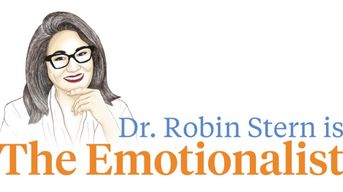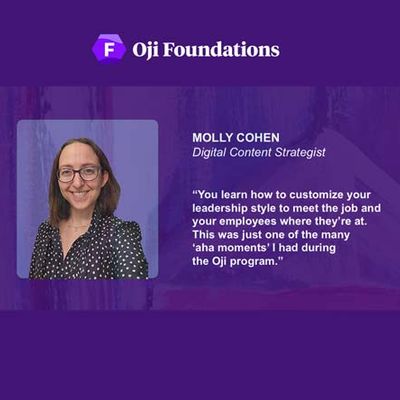The Emotionalist: Burnout

Dr. Robin Stern tackles burnout:
"I would love to hear some thoughts on emotions and burnout and any best practices to assist." - Elizabeth
Dear Elizabeth –
Thanks for writing and asking about burnout. We all have felt it at some point, perhaps most notably in the last year. When we feel stressed, anxious or overwhelmed for a period of time – or when we feel out of control – we become exhausted. After a while, we begin to "burnout." 2020 was an unprecedented year for burnout, and a wide range of emotions: fear of COVID, grief, anxiety about the changes in our daily lives, uncertainty about the future, anger about racial injustice, gratitude for blessings in our lives, and impatience to move forward.
People sometimes feel stuck in one or more of these emotions, which might feel even more intense in the context of isolation, illness, upheavals in education and economics and the fight for racial justice that impacts us all. The result? Many of us have been exhausted for months.
This emotional exhaustion and continued stress over time – especially with no real end in sight – leads to burnout. Burnout is about more than being physically tired and not wanting to get out of bed. Think about your experience at work. Are you experiencing any of the following...
- Less patient and more irritable
- Cynicism
- Feeling alienated or disillusioned
- Feeling less fulfilled or satisfied with your job
- Trouble sleeping, or sleeping too much
- Eating or drinking too much
- Increased headaches or stomachaches
- Apathy
If any of these are familiar, you may be experiencing burnout. The good news is that there are ways to heal and move forward with a greater sense of well being. Some of these suggestions are grounded in decades (and some cases, centuries) of research.
- The first and foundational practice, based on research from the Yale Center for Emotional Intelligence: give yourself the permission to have all your feelings – without judgment and with curiosity and compassion.
2. Adopt a mindfulness practice and make it your own.
3. Check in with your self-care basics: you know, the things your mom likely told you, like investing (your energy, no money needed) in a sleep routine that delivers a good 7 – 8 hours each night. Eat nutritiously, and, as I am sure you know: veggies and good carbs, low sugar and protein and lots of water. Move your body with activities like yoga, exercise, dance, walking, or cycling.
4. Try on an attitude of gratitude, not just in the moment, but daily. Full disclosure: I say a gratitude mantra every morning as I make my bed! I recommend that you find a daily routine that incorporates gratitude. Spend a few minutes each day giving thanks for all you have and for the people in your life who love you. Consider including those essential workers who make sure that our grocery shelves are stocked, those people who care for others, the people who deliver things to us, and so on.
5. Surround yourself with people who lift your spirits and be a person who lifts other’s spirits.
6. Find those things that bring joy and fun into your life – and do them! A game of chess, for example. Or, how about charades? Flying a kite? Hula hooping is a favorite of mine. What’s yours?
7. Tell a story – to yourself and others – about this challenging and stressful time. Include something that you learned about yourself, some kernel of good that emerged during an otherwise tremendously tough time (that tough time that resulted in your feeling burned out). Scientists tell us that making meaning and using reframing to tell a positive or hopeful story is a pathway to resilience. Many people now talk about how they realize after being forced to put things on ‘pause’ that they like spending more time with family; some discovered that they liked to cook; some people tapped into strength they didn’t know they had to care for others and themselves. In some way, 2020 changed us all. This is your opportunity to capture the positive ways it changed you.
So, what did you learn and discover about yourself? Something to think about and hold onto as you persevere through burnout, to restore your spirit with well-being practices. Embrace more than one. You are worth it!
Latest Posts
BACK TO HOME ❯Sign up for our People-Powered Newsletter.

 Meet our Program Experts
Meet our Program Experts
 Why Oji is Different
Why Oji is Different
 First Impressions of the Oji Foundations Program
First Impressions of the Oji Foundations Program